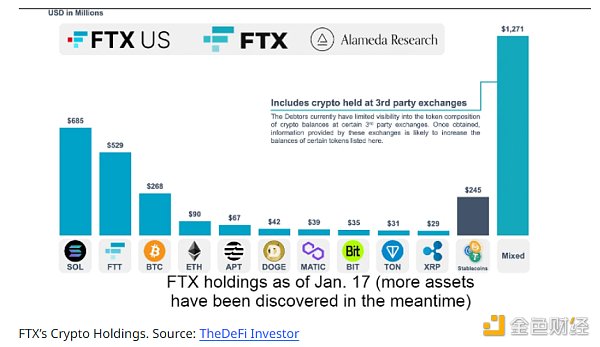Exchange 5 hotspot tracking: The relationship between platform currency and IEO is like stocks and futures
On April 26th, an online conversation on the theme of “Exchange Hotspot Tracking” was held on TokenClub. The two guests in the dialogue were:
Cao Huining: Founder and CEO of Usechain; Professor of Finance and Director of Finance at Cheung Kong Graduate School of Business; formerly taught at Berkeley, California; Ph.D. from the University of California, Los Angeles, and Ph.D. from Yale University.
Cai Kailong: Former Chief Strategy Officer of Firecoin Group; Vice President of Strategic Technology Department of Deutsche Bank (USA); Senior Research Fellow, Institute of Financial Technology, Renmin University of China; Assistant Professor of Finance, School of Business, University of Houston, USA.
Babbitt has compiled five of these core topics and shared them with everyone.
- What kind of blockchain deposit has legal effect? Hangzhou Internet Court gives four elements
- Bitfinex, Tether and the public are openly confronted, is 5.7 billion "frozen" or "evaporated"?
- Introduction to blockchain: the origin of the "island blockchain"
01 favorable policy and currency price recovery
Cao Huining: Since the beginning of this year, there have been many new policies for exchanges. For example, the Indonesian government announced that it can apply for the opening of a crypto-equity exchange in 2019; the Swiss Stock Exchange launched an exchange-traded product (ETP) based on Ethereum (ETH); The London Stock Exchange launched the blockchain ETF; Germany's second largest stock exchange cooperated with the European digital publishing giant to launch a crypto exchange. At the same time, we can also see Bitcoin rise from a low of $3,100 to a maximum of $5,700, almost doubling in three months. How do you see the correlation between favorable policies and the recovery of the currency?
Cai Kailong: I think the impact of the policy depends on the situation. For example, for small countries in Southeast Asia, including Indonesia and Thailand, they all have exchange licenses. However, due to the small market in these countries, their licenses are not high. I believe that more and more small Southeast Asian countries will be in the forefront of digital currency licensing and regulatory planning in the future, but our industry is still mainly looking at big countries and is guided by US regulation.
However, the two news just mentioned by Professor Cao are quite interesting. One is the ETP launched in Switzerland and the other is the ETF launched in London. Because the digital currency is now recovering slightly after falling to the bottom, these are more in line with the products of institutional or rational investors, and the demand will be great. Therefore, the ETF is expected, but the US SEC has not approved it. It can only be tried in other countries.
As for the market, I think that now is only a rebound after falling into the bottom, 6000 US dollars should be a big resistance, because Bitcoin also fell in this position for a long time before falling. Cao Huining: That's right, but if you break the $6,000 point, you should get $9,000 soon.
02 new retail and DEX
Cao Huining: Qian'an recently launched its own public chain and opened a decentralized exchange. At present, it can be seen that the three major exchanges are trying to do this. The drawbacks of centralized exchanges are also increasingly criticized by everyone, such as the frequent occurrence of money-losing transactions, and the cost of the currency is also very expensive. So can decentralized exchanges change these issues? You used to be in the fire currency, how do you think?
Cai Kailong: The exchange is actually very similar to the retail industry. Former Ali CEO Wei Zhe proposed four qualities that everyone should pursue for new retail products: “multiple, fast, good, and provincial” . The same is true of exchanges. To stand out from the crowd, you need more currency, faster trading, better service, and lower cost. However, the digital currency exchange has one more requirement, namely “security” , security and security, technical security and policy compliance.
For the centralized exchange, there will inevitably be some hackers who regard it as a target. In history, there have been many incidents where the exchange has been hacked. We know that there are fewer incidents than the real ones, because there is such a transaction. It must be concealed first, understandable. Therefore, the security of the centralized exchange is difficult, the information is not transparent, and it does not save money. The fee is very high. Its advantages are also obvious, it is fast.
I think that the current three major central exchanges are committed to the development of the public chain, while trying to find a decentralized exchange, this is a very welcome phenomenon. Although the decentralized exchanges are not doing very well, but the technology is changing with each passing day, we should not limit such imagination.
03 Exchange Manipulating Risk and Bitcoin ETF
Cao Huining: When you talk about security issues, we will find that the rise and fall of Bitcoin is basically a straight line. Everyone has great doubts about the security and manipulation of the exchange, and there are reports that the volume of the exchange is many. Brush it out, what do you think of this?
Cai Kailong: When we usually look at the volume of the exchange, we will use the data on CoinMarketCap as a reference. One scholar has specifically studied the above transaction volume and found that two-thirds of the amount is false. The reason is very simple. No one supervises, no one verifies, the information is not disclosed, and it is difficult to verify.
This is also the reason why the SEC has not approved the Bitcoin ETF. First, its information is opaque, and second, its price may be manipulated. As a cautious regulator, the SEC is responsible to investors. But fortunately, Bitcoin futures are regulated by the CFTC, which makes people who want to manipulate Bitcoin have a lingering fear. The CFTC can use the power of the US judicial system to trace it.
04 coins down the BSV, the rights boundary of the exchange
Cao Huining: Due to the conflict between Ao Bencong and Zhao Changpeng, the currency has been removed from the BSV. Everyone thinks that the rights of the exchange are not too big. It seems to be bigger than the rights of the mines we are talking about. What do you think of this?
Cai Kailong: In the digital currency world, the exchange is the core, and there is no doubt about it. Not only from a profit perspective, but also the influence and voice of the entire industry.
If we compare digital currency exchanges with traditional exchanges, we will find that traditional exchanges only do two things, namely value discovery and liquidity. The rights of digital currency exchanges are far greater than this , and it can determine whether the currency can be This is a matter for the SFC in the traditional financial market, so the digital currency exchange is also responsible for the supervision. In addition, the exchange also provides a wallet, which is equivalent to the role of the bank. In addition, it is a lawyer, accountant, auditor… The exchange is a referee and a player.
That's why the SEC can't give the exchange license. The SEC still doesn't give a license to such a good exchange for coinbase compliance. This is where they care. It's the same without ETF, because there is no way to make a deal. Global unified regulation.
05 behind the hot IEO, the platform coin and the project side bundle
Cao Huining: We know that the currency security and the wave field actually complement each other very early. The early wave field is the largest trading variety in the currency, and the wave field also relies on the currency to harvest many investors. Nowadays, the wave field has jointly invested in the BTT, and it has risen more than ten times since it was launched. This has triggered the IEO boom of the exchange. What do you think of this?
Cai Kailong: IEO is an ICO that uses the credit endorsement of the exchange. If you use a simple comparison to illustrate the relationship between platform currency and IEO, you can think of platform currency as stock and IEO currency as stock index futures. That is to say, the exchange injects its own credit into the projects it chooses. On the day of the launch, the fluctuations will be very large, because in addition to the nature of the project itself, it is also subject to the strength and credit of the exchange. Impact. The fluctuation of the platform currency is the fluctuation of the stock, while the project currency is the fluctuation of the futures.
Is the IEO good? Each has its own advantages and disadvantages. For the project side, it saves a lot of unpredictable processes, such as the risk of private placements being unable to get up to the exchange and investors. For the exchange, it requires you to lock the currency, which can drive the traffic and popularity of the platform, which is a good marketing. But there are many drawbacks. I know more than 2,000 transactions in the world. There are no thresholds for the exchange. I will give me 200,000-500,000, and I will be able to open an exchange in 2 days. Of course, it is very difficult to operate it. So at the low threshold of the exchange, there are now more than 100 IEO projects. These projects are mixed. You don't know if the exchange will jointly cut the leeks.
We will continue to update Blocking; if you have any questions or suggestions, please contact us!
Was this article helpful?
93 out of 132 found this helpful
Related articles
- April 27th market analysis: How far can the market be activated by issuing additional USDT?
- A boring experiment about garbage coins: Is the coin being a human instinct?
- Ethereum 2.0 will switch to the PoS consensus mechanism, and V God proposes to set the verifier return rate to 3.3%.
- Blockchain application report for the first quarter: Finance and government affairs are still the main battlefields, but they are spreading to more fields.
- Completely restored Bitfinex, Tether was sued: 4 major violations, $900 million in doubt (with a 23-page lawsuit)
- Getting started with blockchain | Remarks when transferring EOS, you can still play like this
- Thailand's largest commercial bank completes blockchain B2B cross-border remittance, shortening settlement time from 1 day to 1 minute






